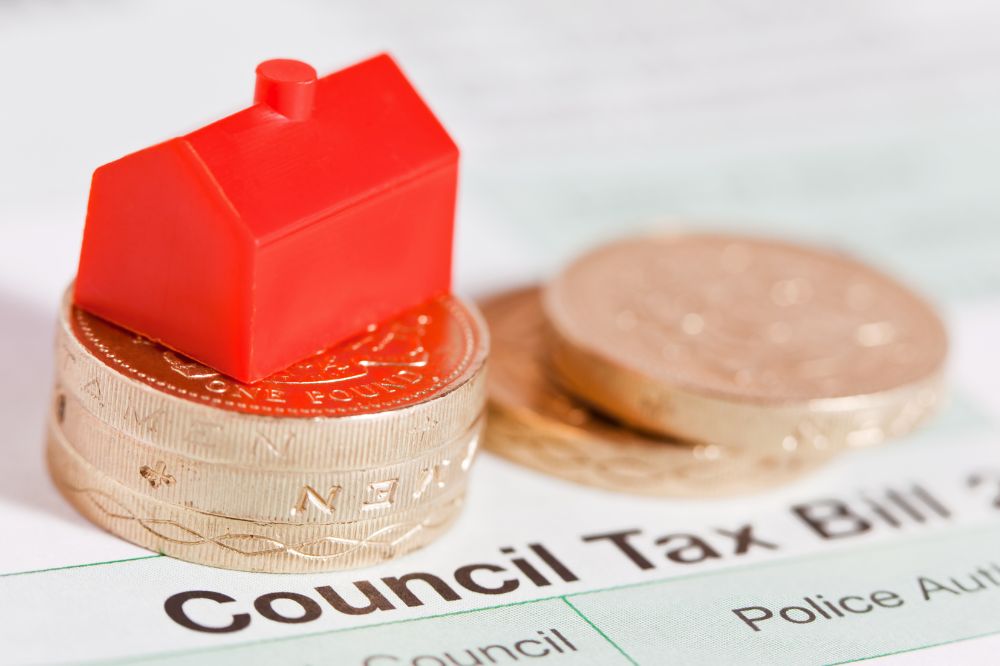Senedd passes Bill to reform council tax in Wales

A Bill to reform council tax and non-domestic rates in Wales has been passed by the Senedd.
The Local Government Finance (Wales) Bill will see a series of changes to tax systems making them “fairer and work better for the future needs of Wales”.
For non-domestic rates (also known as business rates), the Bill will increase how often the values of non-domestic properties are updated to once every three years.
It will also provide more flexibility to make changes to reliefs and exemptions and enable changes to the calculation of payments for different categories of ratepayers.
For council tax, the Bill will establish a five yearly cycle of property revaluations from April 2028 onwards, and allow Welsh Ministers to amend future revaluation years.
The Welsh Government says the new system will provide more flexibility for the labelling of tax bands to fit future possible redesigns of the system.
The national Council Tax Reduction Scheme is set to continue providing financial help to low-income households;
It’s hoped the Bill will provide more flexibility to make changes to discounts and those disregarded from paying council tax.
Devolution
Cabinet Secretary for Finance, Constitution and Cabinet Office, Rebecca Evans, said: “This is the first Welsh local government finance bill since devolution. It introduces important changes to the local tax system in Wales, reforming the system to make it more consistent, effective, and to give us flexibility in the future.
“Extensive research and experience of operating the current systems for more than two decades highlighted a range of limitations and the case for change was clear.
“With the Bill now being approved by the Senedd, we will have a framework designed for modern Wales, and the necessary levers to adapt local taxation in the future as circumstances and priorities change.”
It’s long been argued that council tax is unfair because it is based on property prices and not on people’s ability to pay.
The shake up will now see a revaluation of properties which have increased in value significantly since the last review 20 years ago.
Referendums
The Welsh Conservatives have warned that the Bill could pave the way to higher council tax for some Welsh households
Shadow Minister for Finance, Peter Fox said: “The Bill’s wording is troubling, so I am not convinced that the single person discount is safe in the hands of Labour ministers seemingly intent on enabling Welsh Councils to hike council tax bills for thousands of residents across Wales.
“The Welsh Conservatives are clear, the single person discount is incredibly important, particularly for widowers, and must be enshrined into law and Labour’s plans for council tax revaluations must not force taxes up for Welsh households.
“We also believe that local referendums should be conducted by councils where they propose council tax increases over 5%, our citizens should have a voice on the tax they pay.”
Support our Nation today
For the price of a cup of coffee a month you can help us create an independent, not-for-profit, national news service for the people of Wales, by the people of Wales.





Sounds like a mess piling up. Labour losing my vote if this is not balanced. Already pay one of the highest rates in the UK and probably have to pay more because the housing market has going into overdrive, things beyond my control.
Not many people responded and that will drive the costing for a nation?
https://www.gov.wales/sites/default/files/consultations/2022-12/46262-summary-responses.pdf
“five yearly cycle of property revaluations from April 2028 onwards”
Or to put it another way a five yearly cycle of banding increases from April 2028 onwards
There is an increasing number of people who, because income tax thresholds have not changed are now paying the higher rate of tax. Any further increases on taxes of these people (changes in council tax bands and further increases in council tax) won’t result in civil unrest but will likely result in changes in who people vote for. Labour need to be very careful, the taken for granted people on middle and slightly higher incomes are increasing shouldering the burden of the current economic mess in the UK.
I think the thrust of the argument for reform is exactly because those on the highest council tax bands were recognised as paying proportionally less than those in the lower bands. However, it’s likely that Council Tax will remain a deeply regressive tax and the only fair systems would involve either a local income tax or a land value tax, or a combination of both where appropriate. For most home owners it seems to me that a local income tax is the fairer option as it would be based on ability to pay rather than the value of the property… Read more »
Every single household will be paying more not less……
It’s not the ability to pay that’s the fairness problem, it’s the lack of proportionality. So someone living in a property double the value of their neighbour doesn’t pay double the tax. This is a de facto subsidy of those in larger more expensive properties by those in smaller cheaper properties. It was a worry about ability to pay that created this situation because Portillo imagined the big old mansions were all full of asset rich cash poor widows who couldn’t afford to pay their fair share.
Why not go all the way and replace council tax with a simple person based system based on the ability to pay. It could be called Community Charge or Poll Tax
There is no distinct difference in the level of service provided between a smaller home or a larger home. The council does little more than empty the bins and collect recycling every other week. A flat fair rate for everyone should be introduced. People are being penalised for wanting to climb the property ladder. Governments/politicians should remember not all wealth is inherited! Hard work /wanting to progress is being punished.